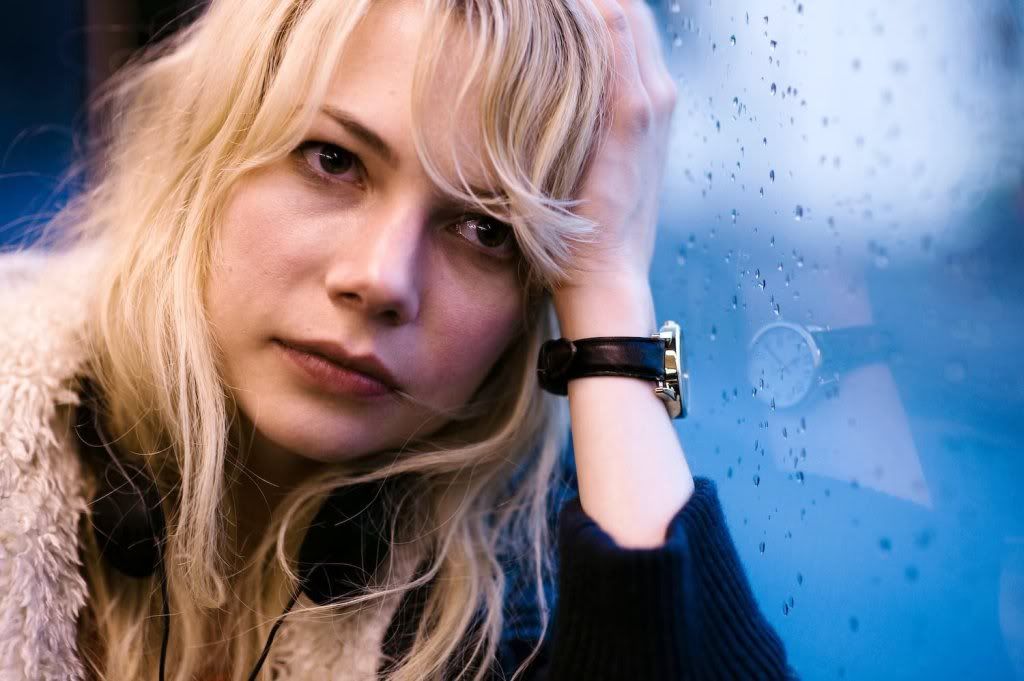
Blue Valentine can be adequately described with one word: brutal. Do not watch this if you are just embarking on a serious relationship. Don't watch it if your relationship is on the rocks. If you watch it when you're single, you might never enter a relationship again.
It presents a harsh reality that's all too real; sometimes there is no grand turning point when a relationship ends. Often it's just a steady chipping away by one against the other, until the very foundation breaks and the whole tree falls, smashing through everything in its way.
It has occurred to me of late that there has been a strange cross-pollination between mainstream and indie films, to the point where some indies like Kids Are All Right look as shiny as whatever Vince Vaughn tripe they're pushing down our throats. Similarly, you get mainstream films like The Town that pay a lot more attention to nuances of character than you'd expect in a mainstream action movie.
I've been missing that particular 'look' that indies of the late 90's and early 2000's had, not grainy exactly, but somehow gritty, a bit dirty, perfect in its imperfection. Random shots go out of focus when they perhaps shouldn't, fades and cuts seem to take just a little bit longer than they ought to. Everything is lit a shade too bright.
Something about that style of filmmaking makes the actors work harder; they can't act just with gestures, eyes or voices; every last bit of their bodies need to make a statement. It's poetry of sorts - just as every single word matters, every vibration is essential. I wish there were a term for this style (or maybe there is and I'm just ignorant). Blue Valentine is a great example of this; it's a very small movie with no fancy tricks but terrific actors, and still manages to loom so large in viewing and in memory.
We watch Michelle Williams as she steps onto the wrong train, a train which never seems to stop to let her off, or even stretch her legs. It's heartbreaking to see, as her journey moves forward in time, she loses her looks, her spirit and her very will to live. We don't even need to see her face to recognize this, it's in her posture. This is her story, from the first frame to the last, her attempts first to cope and then to escape.
And just so, Ryan Gosling's character grows up and becomes, well, horrible! He somehow becomes a vacuum, sucking the life out of everything around him at a velocity that's nearly impossible to break free from. It's not just his words, not just his actions, but something in his entire being makes it plausible that this is how he always faced life: looking for a way to take it for granted. He starts off desperately needy and transforms into desperately possessive. Who wouldn't break under that sort of pressure?
What makes the whole thing bearable, in the end, is that Blue Valentine is very much a story about these two people. It's not a referendum about the institution of marriage. It's not the grand story of the disillusionment that comes with age, when you learn that fairytales are not real. It's a close-up portrait of two people, one who is breaking at the seams, and one who is speeding up that process without even realizing it. This is the sort of movie that lives and dies on the strength of its actors, and they absolutely excel.


Yeah very interesting- it is certaintly William's story. However I would say that there is true love between the pair, and the ending does have a glimmer of hope.
ReplyDeleteThere definitely is true love between the two, but their attitude towards relationships are fundamentally incompatible: for Ryan Gosling's character, a relationship completes him and is an end unto itself. For Michelle William's character, a relationship is a step, a partnership working toward creating a better future.
ReplyDelete